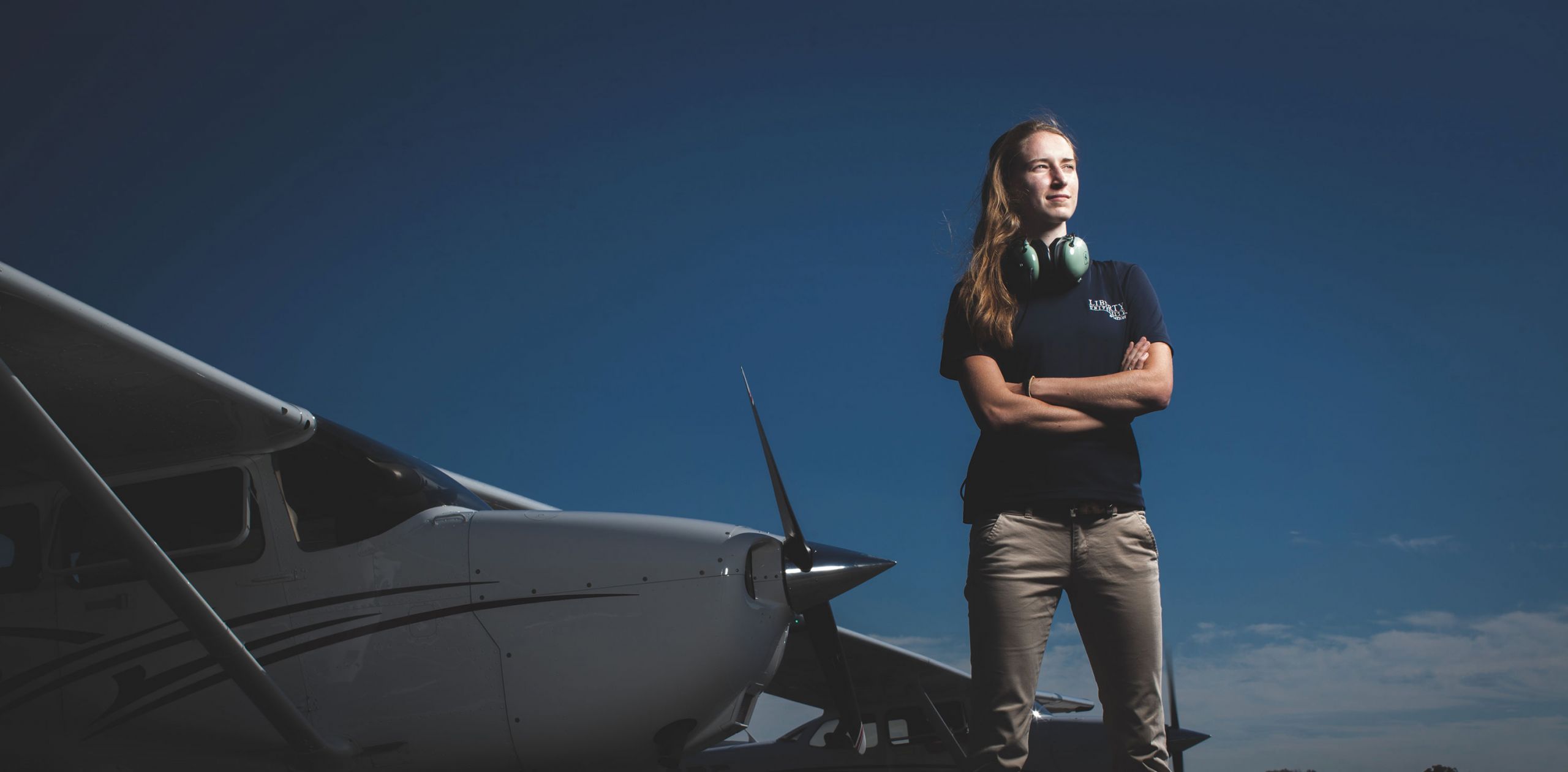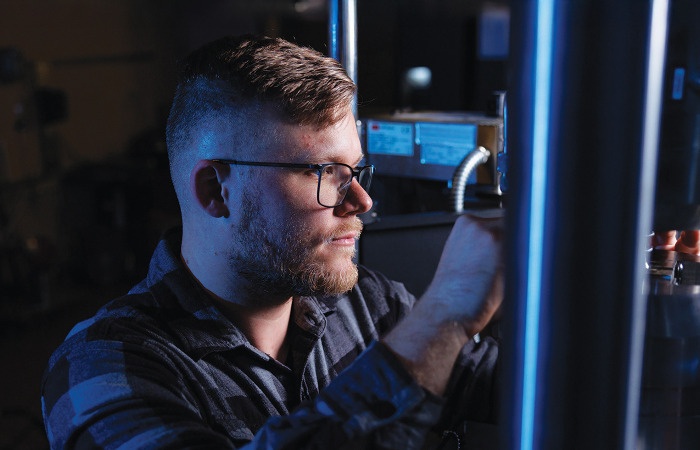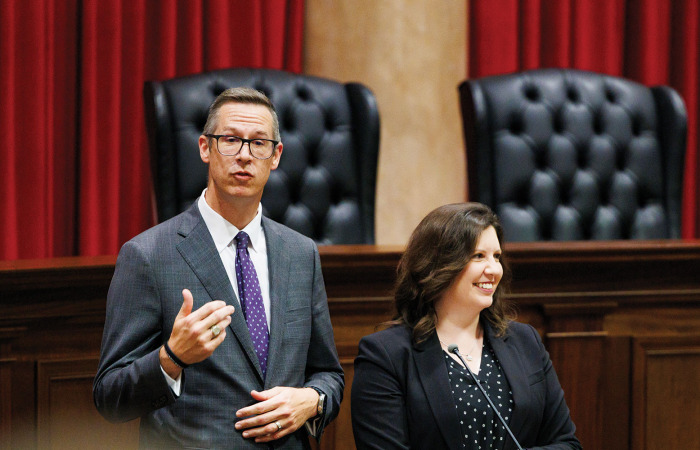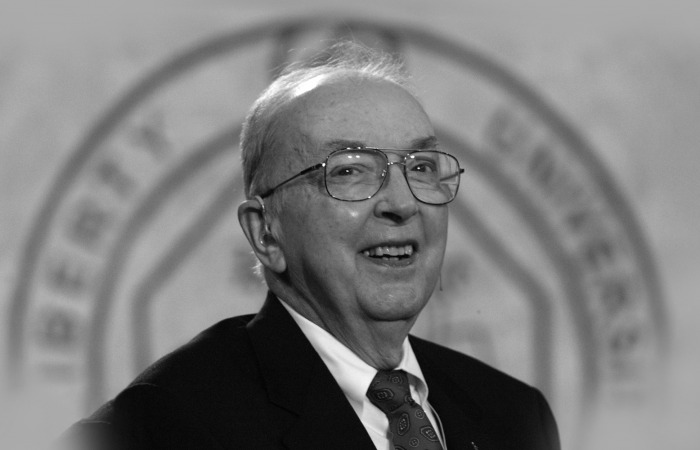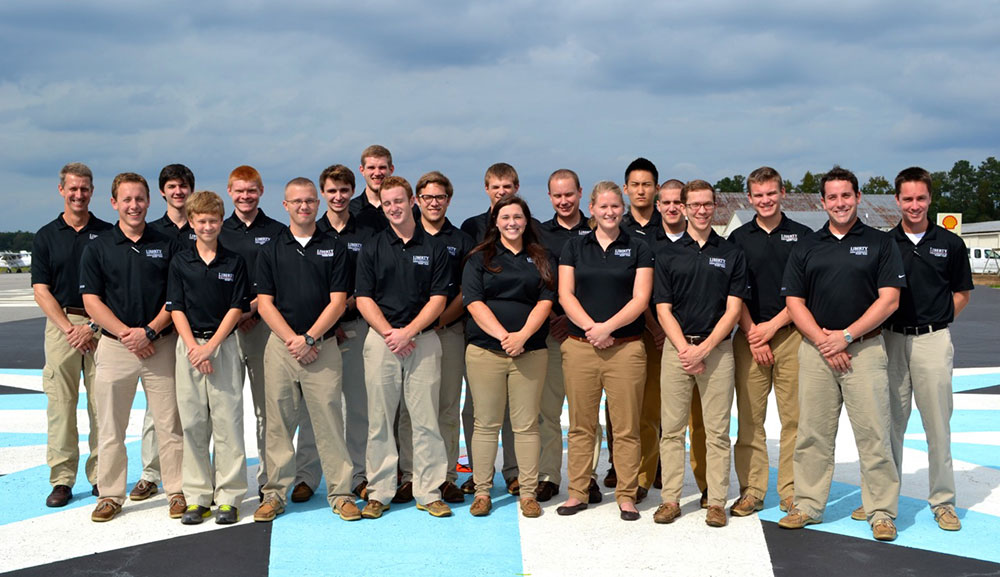
Liberty University’s School of Aeronautics flight team won its ninth consecutive National Intercollegiate Flying Association (NIFA) regional championship, which took place in Franklin, Va., Oct. 16-19.
As the Liberty University School of Aeronautics (SOA) prepares for its 13th year of operation, administrators are making plans to expand its influence well beyond the Lynchburg, Va., campus. They are confident in the quality of the largest faith-based university aviation program in the country and believe that Lynchburg can become a key player in the aviation future of Virginia.
Over the past few years, Liberty aviation students have won regional competitions while acquiring certifications essential to becoming pilots and aviation professionals. The school itself has streamlined its curriculum to accelerate students’ progress through the program.
Last fall, the Federal Aviation Administration (FAA) approved a reduction in flight training hours (from 1,500 to 1,000) for Liberty students. This change allows Liberty graduates to be hired as first officers by a commercial airline with 500 less training hours than most other schools. Liberty is the seventh university in the country to receive this authorization.
“This new agreement helps our graduates get a job with regional airlines more quickly than they could have in the past and more rapidly than other potential candidates,” said Dave Young, dean of the School of Aeronautics. “It is also recognition from the FAA that we have an excellent and solid program, or we would not have gotten the waiver of hours.”
Another sign of success also came last fall, when the school’s flight team captured its ninth straight regional title in the National Intercollegiate Flying Association (NIFA) competition and qualified for nationals May 12-17 at Ohio State University Airport.
In a time when well-trained pilots and aircraft mechanics are in high demand, Young, a retired Air Force brigadier general, said the school is positioned to train students for jobs as both pilots and mechanics, as well as provide the academic courses needed to supplement the flight training provided by hundreds of fixed-base operators (FBOs) throughout the United States. FBOs are small businesses that provide private flight training for hundreds of pilots each year as well as other air services.
Young is actively approaching leaders in the aviation industry as well as pursuing FBOs to partner with the Liberty aviation program. Liberty’s ability to offer aviation courses through its online program has made it a natural complement for existing flight programs managed by FBOs throughout the United States.
Liberty has long been considered a pioneer in online education and is now the nation’s largest private, nonprofit four-year college, and the School of Aeronautics has grown as quickly as the university itself.
In 2002, the SOA started with only four students and focused primarily on flight instruction. Young and one other instructor were the school’s only teachers.
Later, the school added a one-year flight mechanic training program to meet the needs of pilots who wanted to serve on the mission field. “Mission aviators often operate on the fly-it-and-fix-it concept,” Young said. “They operate in remote areas in many cases and need the ability to repair aircraft.”
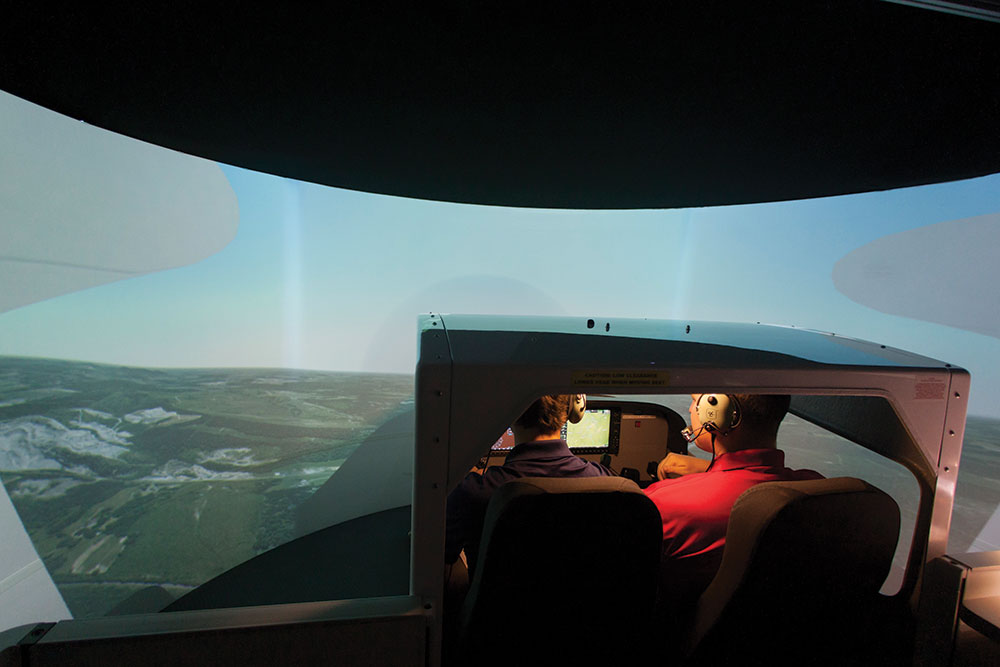
An aeronautics student and instructor train in one of Liberty’s flight simulators.
Now, in addition to a full curriculum for both pilots and mechanics, the school offers flight attendant training and a concentration in Unmanned Aircraft Systems (drones).
Drones, which have been used primarily for military purposes, are being touted as the next generation of aircraft. They are now being used by law enforcement agencies, the Department of Homeland Security, the Federal Emergency Management Agency, and the Department of the Interior, among others. Future civil use is in development and will begin to emerge in 2016. Liberty staff provided expertise and helped secure funding for a UAS testing and research site at Virginia Tech, one of six sites around the country recently approved by the Federal Aviation Administration.
Last fall, all 12 students in the new Unmanned Aircraft Systems (UAS) concentration received operator certification in the Dragon Eye UAS, making them the first Liberty students to receive full industry certification in the field.
The exponential growth of the Liberty School of Aeronautics comes at a time when the demand for highly skilled pilots has skyrocketed, particularly those with the proficiency to fly sophisticated instrumented commercial airliners. Within the next 15 years, there will be a need for 60,000 commercial airline pilots in the U.S. alone.
“The capacity in the U.S. to produce the number of pilots needed is currently far exceeded by demand,” Young said. “Now I can look students and parents in the eye and tell them there is a job waiting for you when you graduate.”
In fact, the Liberty School of Aeronautics has signed hiring agreements with regional commercial airlines willing to guarantee jobs for qualified Liberty aviation graduates.
“We have been able to do that with our pilots and we have a 100 percent placement rate for our mechanics,” Young said.
Liberty’s program is also enhanced by its own full-service fixed-base operator affiliate, Freedom Aviation, which provides students with employment opportunities and exposure to careers in aircraft sales, management, maintenance, and corporate flying.
“In essence, it gives our students exposure to a real-world aviation company,” Young said.
The experience with Freedom Aviation has allowed the School of Aeronautics to tailor its online programs to meet the needs of fixed based operators across the country. Because of Liberty’s well-established online programs, FBOs that become affiliated with Liberty can offer their students academic instruction in conjunction with traditional flight training and increase the chances that their students will get jobs. This unique arrangement also allows FBOs the option of providing eligible students with VA educational benefits established by the Post 911 VA Bill.
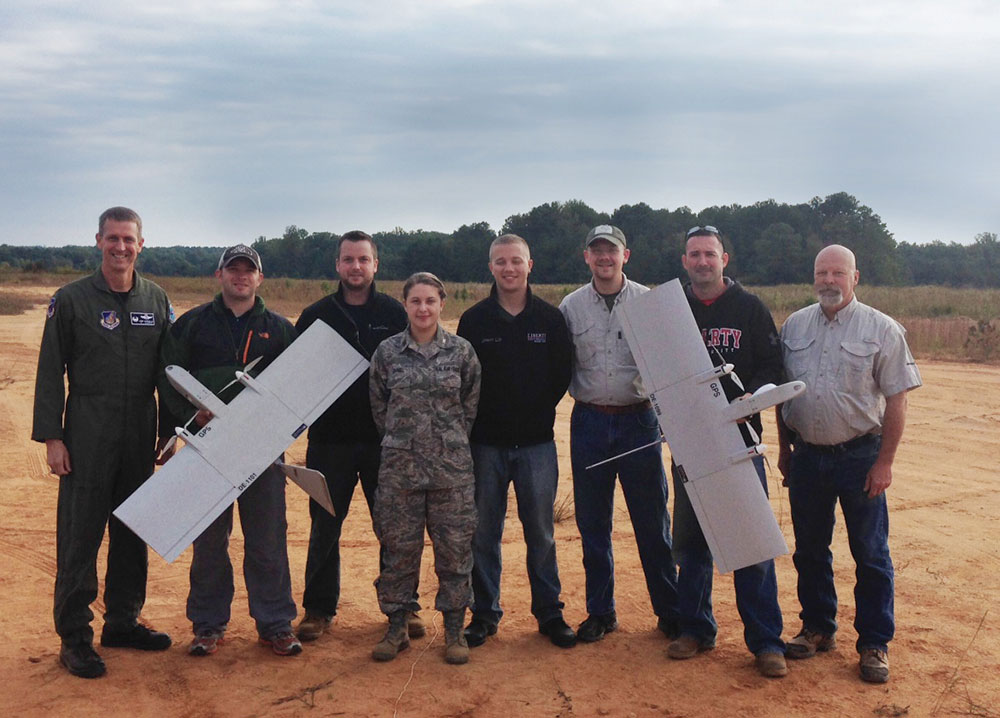
John Marselus (left), Liberty University’s School of Aeronautics associate dean of Flight Operations, and Greg Lumpkin (right), president of UAV Pro, with the first six of 12 SOA students to receive operator certification in the field of Unmanned Aircraft Systems: Dough Shick, Jonathan Beesley, Nicole Daniel, Jeremy Lee, Thomas Sorrels, and Stephen Backof.
Liberty tested its FBO outreach initiative with a new Freedom Aviation affiliate agreement at the Newport News/Williamsburg (Virginia) International Airport in December.
The school is benefiting in its marketing efforts by an association with some significant muscle in the aircraft industry. The school entered into an agreement in November with the Cessna aircraft corporation to promote Liberty’s aviation program to its affiliated FBOs.
Liberty also has a working agreement with John and Martha King, who provide many of the training materials used in the aviation industry.
“They are going to promote us as they distribute their materials worldwide,” Young said.
On the academic horizon, Young envisions continued growth and plans on adding programs that will lead to graduate employment, such as in airport management and possibly a graduate-level business degree program with an aviation emphasis.
The School of Aeronautics established its airport campus in 2010 at Lynchburg Regional Airport, about five minutes from Liberty’s main campus. It includes three aviation facilities with a total of nearly 100,000 square feet, including the Aviation Academic Center with classrooms, administrative offices, and flight simulators; the A&P Center for the Aviation Maintenance Technician program to train and perform aircraft repairs; and Freedom Aviation.
